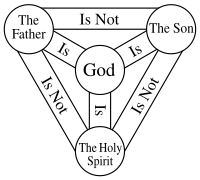
Photo from wikipedia
Although early psychoanalytic theorists took a disapproving stance towards religious belief, later theorists recognized the critical support that a relationship with God provides the believer. This shift has allowed social… Click to show full abstract
Although early psychoanalytic theorists took a disapproving stance towards religious belief, later theorists recognized the critical support that a relationship with God provides the believer. This shift has allowed social workers to continue utilizing psychodynamic theory without taking a condescending attitude towards their clients’ religious beliefs. Kohut’s articulation of selfobject needs that persist throughout adulthood provided a prism through which to understand the support for the underlying structures of the self that a connection with the divine offers. However, Kohut’s identification of God as a selfobject limits itself to only its supportive element. This article explores the potential for psychological growth inherent in a relationship with God. The ability to acknowledge and mentally process divine failure—those moments where for the believer God does not offer sought after support—seem to be the primary catalyst for exercising this potential growth. Clinical examples are provided to demonstrate how a relationship with God can be addressed in a therapeutic context.
Journal Title: Clinical Social Work Journal
Year Published: 2017
Link to full text (if available)
Share on Social Media: Sign Up to like & get
recommendations!